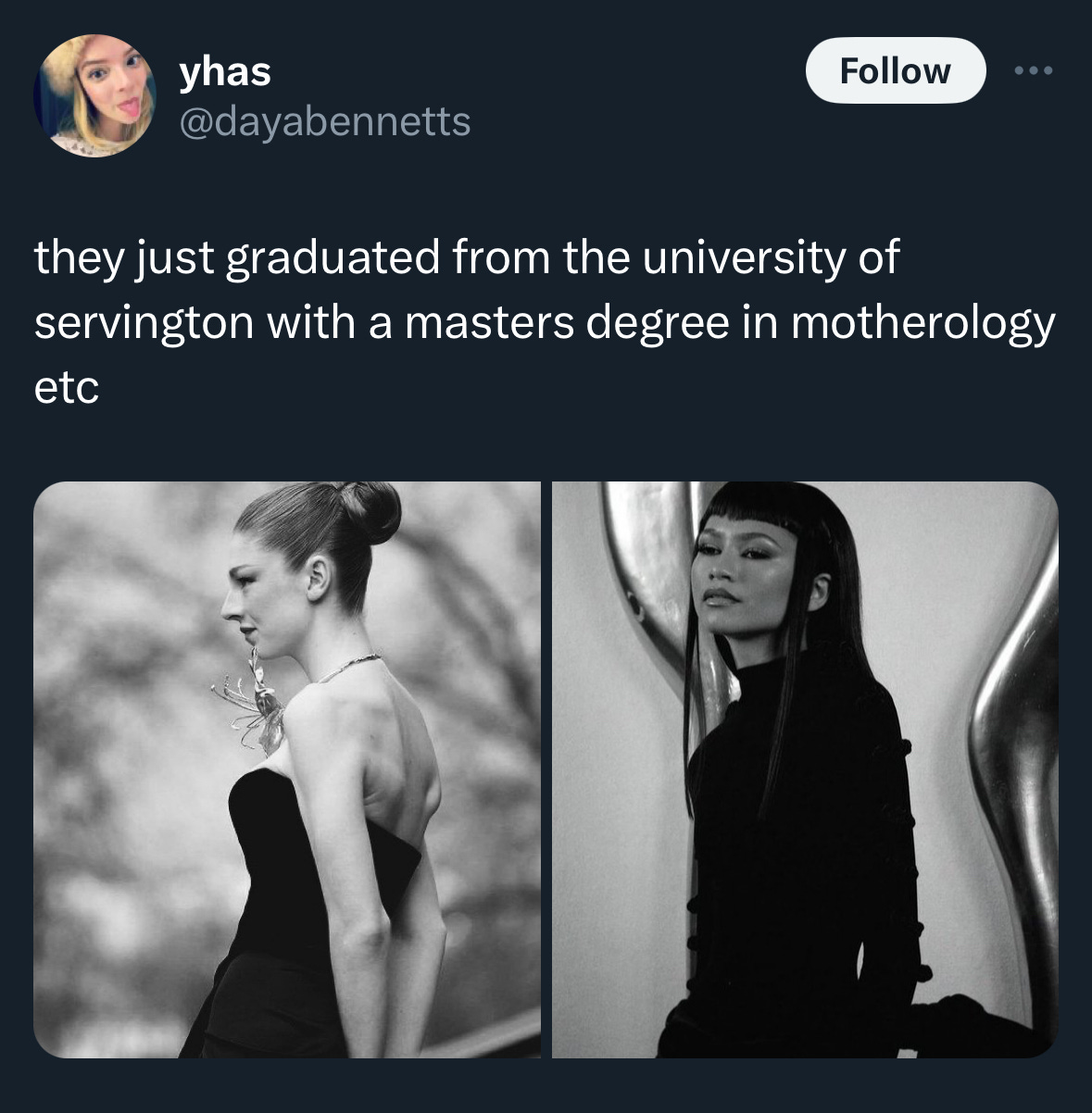why can't gays give normal compliments
she ate cuntaminated food at the mother buffet and had explosive slayarrhea
Welcome to Flop Era, a digital platform where I muse on pop culture, cultural trends, and all things Gen Z. Today, we’re using the mothertoilet.
If you are a pop girl or an award-winning actress, you probably were fearing for your life during the past few weeks. Drones of gays took to their laptop or phone to compliment their favs on Twitter with remarks like “she shitted in the mothertoilet” and “she caused a motherquake measuring 9.9 magnitude on the cunter scale.”
You don’t have to be a Victorian child to disintegrate after reading those words — if you’re not perpetually online, then you’re probably utterly confused on what “cunter scale” and “mothertoilet" even means, let alone their context.
Though the origin of these phrases may be found in the crevices of Gay/Troll Twitter as i-D noted, the Golden Globes and Emmys were particular vulnerable events for these outlandish compliments. The question is why can’t gays just say someone looks or sounds good?
It may be traced back to the queer community historically having to develop secret code words or slang to communicate with one another to avoid risk of discrimination or persecution. Overtime, these terms evolved into gay lingo that have entered the mainstream consciousness like “camp,” “trade,” and “butch.” It is believed that this secret language, sometimes referred to as Polari, originated in Britain in the nineteenth century. Across the pond in the United States, Ballroom culture — and its colloquialism — was taking shape.
The influence of Ballroom culture is evident in the aforementioned tweets. It would be ignorant to not acknowledge that these terms stems from Ballroom language and from Black queer folks. We’ve seen time and time again when a niche entity becomes so mainstream that it loses its original context and significance. For instance, the term “mother” was particularly used in Ballroom to describe “an esteemed community leader who takes younger LGBTQ+ folks under her glittering wing,” Gay Times’ Nick Levine wrote. Now it is used to describe “cishet women with a certain pop cultural cachet and demonstrable queer appeal.”
The popular absurd compliments aren't the only unique form of communication that arose on the internet. I remember when “skinny queen” was a term of endearment to describe female celebrities. However, that too declined in usage, probably because it was used to death but also because of its problematic connotation.
And now the c-word is growing in popularity in certain pockets of the internet as a word of praise. “Serving cunt” is “something aspirational” among Gen-Z, wrote David Mack for Rolling Stone.
“It’s part of a long tradition of co-opting taboo words’ power,” Stan Carey, editor of Strong Language told Rolling Stone. “Since identity politics is now such a common and explicit part of public discourse, it makes sense that words intended as weapons against particular groups would, in some cases, be re-appropriated by their targets as a way of blunting those weapons and redirecting their force.” (“Serving cunt” also stems from Ballroom).
As outlandish, confusing, and possibly offensive as these expressions may seem to people, they were and are vital for the queer community. It’s a way of communicating, signaling, affirmation, and celebration among and within our community.
The LGBTQ+ community has always talked in codes. Although we don’t have to confide in secrecy (for the most part), that verbal aspect still lives on. In a strange way, saying that someone graduated with a masters degree in motherology at the university of servington instead of just saying they looked good is queer resistance, especially during a time where our rights are increasingly challenged and attacked.
I’m more than certain that this type of lexicon will go the way of “skinny queen” and fade into obscurity. But it will forever live on in internet culture and, to an extent, queer history.
media of the month
Shows, movies, and books I’ve recently enjoyed and recommend:
📺 Percy Jackson and the Olympians
🎥 Iron Claw, Past Lives
📖 Fellow Travelers by Thomas Mallon, The Fire Next Time by James Baldwin
add me on goodreads and letterboxd







